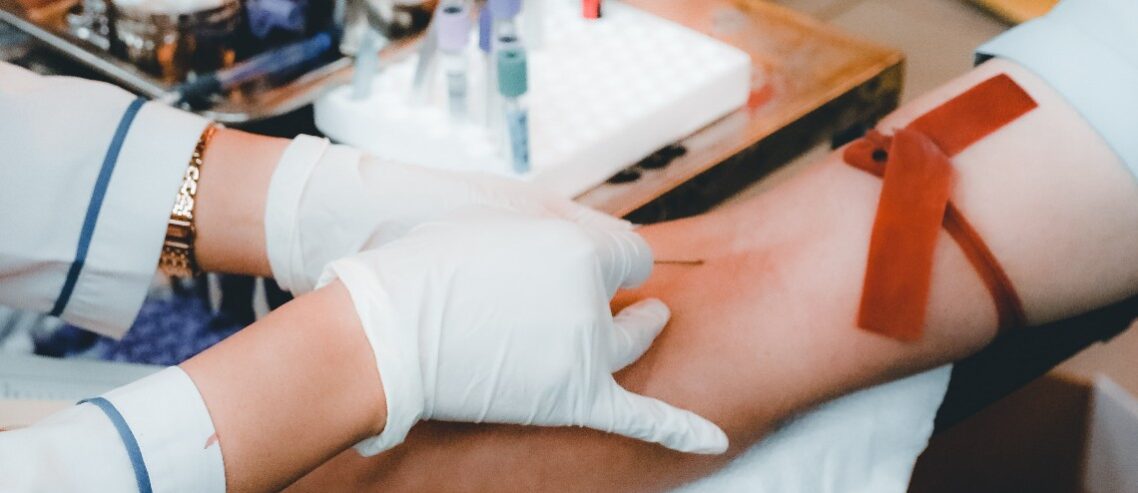World Blood Donor Day 2022: Why should you donate blood?
Every year on 14 June, countries worldwide celebrate World Blood Donor Day, a day where we celebrate blood donors and spread awareness about the global need for safe blood. Blood transfusions can save lives, but many patients in need worldwide do not have timely access to safe blood.
In today’s article by Pacific Prime Thailand, we will talk about the importance of blood donations, why you should donate blood, who is eligible for donating blood, and where you can donate blood on this World Blood Donor Day in Thailand.
Why is blood donation important?
First and foremost, blood cannot be manufactured, so donations are the only way we help someone in need. A single donation can save up to three lives, as one blood donation provides different blood components that can support up to three people. These are red blood cells, white blood cells, and plasma. There are particular ways in which the blood types must be matched for a safe transfusion. A proper blood transfusion can mean the difference between life and death.
Who needs safe blood the most?
- Women during childbirth when suffering from excessive bleeding
- Children with severe anemia due to illnesses such as malaria or malnutrition
- Patients with blood and bone marrow disorders
- Patients with low hemoglobin and immune deficiency conditions
- Patients who are suffering from inadequate production of blood-clotting proteins (hemophilia)
- People with traumatic injuries from emergencies, disasters, and accidents
- Patients who are undergoing advanced medical and surgical procedures
Blood types
There are four major blood groups determined by the presence or absence of two antigens, A and B, on the surface of red blood cells. In addition to the A and B antigens, there is a protein called the Rh factor, which can be either present (+) or absent (–), creating the eight most common blood types (A+, A-, B+, B-, O+, O-, AB+, AB-). Note that Rh-negative blood can only be given to Rh-negative patients, and Rh-positive or Rh-negative blood may be given to Rh-positive patients. The rules for plasma are the reverse.
The universal donor – the hardest to save
Universal donors are those with an O-negative blood type. This type of blood is a match for almost all other blood types. On the other hand, the requirement for an O-positive blood type is also high because it is the most frequently occurring blood type (37% of the world population).
However, since only 7% of the world population have an O-negative blood type, and those with this blood type can only accept O-negative, they are often the hardest to save in an emergency situation.
| Blood Type | You can give blood to | You can receive blood from |
| A+ | A+, AB+ | A+, A-, O+, O- |
| A- | A+, A-, AB+, AB- | A-, O- |
| B+ | B+, AB+ | B+, B-, O+, O- |
| B- | B+, B-, AB+, AB- | B-, O- |
| AB+ | AB+, | EVERYONE |
| AB- | AB+, AB-, | AB-, A-, B-, O- |
| O+ | O+, A+, B+, AB+ | O+, O- |
| O- | EVERYONE | O- |
Who can donate blood?
Most people can donate blood. However, there is an eligibility criterion you must pass before donating.
Age and weight
According to the Thai Red Cross, people from the age of 17-70 years can donate blood. However, first-time donors must not be older than 55 years old. In addition, donors must weigh at least 45 kilograms, and for foreign blood donors, the requirement is that they have resided in Thailand for at least six months.
Health and behavior
Prospective blood donors must be healthy for obvious reasons. People with a medical history of heart disease, liver disease, lung disease, blood disease, cancer, or bleeding and difficulty stopping bleeding, as well as hepatitis B virus or hepatitis C virus infection, are not allowed to donate blood. In addition, blood donors should not have a history of drug addiction, and people with new tattoos (within three years) and those with a new skin piercing (within 12 months) cannot donate blood.
Thailand, like most other countries, does not allow people who have lived in the UK between 1980-1996 to donate blood because of the possible risk of transmitting the human form of bovine spongiform encephalopathy, known as variant Creutzfeldt-Jakob disease (vCJD).
Before donation, donors must not have had any antibiotics for at least seven days before donations. Moreover, donors should not undergo teeth extraction, filling, scraping, tartar, and root canal treatment during the past three days before the scheduled blood donation and abstain from alcoholic beverages during the past 24 hours.
Blood donors who have undergone major surgery should not donate blood for six months. Donors who have undergone small surgeries should not donate blood for seven days after their surgeries. If the donor has received blood from previous treatment, they should refrain from donating blood for one year.
Where can you donate blood in Thailand to celebrate World Blood Donor Day 2022?
Given that you are eligible for donating blood, here are a few places where you can go to donate blood.
- National Blood Centre, Thai Red Cross Society on Henri Dunant Road in Bangkok’s Pathum Wan district
- Private and state hospitals across the country.
Three reasons why you should donate blood:
- Development of new red blood cells
Blood can be donated as often as every three months. When we donate blood, the bone marrow produces new blood cells to replace blood lost to maintain the same blood volume. The replenishment process boosts overall health. However, if one does not donate blood, the body will routinely excrete the degenerated blood cells.
- Reduced risk of heart disease
According to a study conducted by the American Journal of Epidemiology, donating blood at least once a year may lower the risk of heart attack by 88%.
- Free blood test
The first time you donate blood, you’ll receive a mini body check-up, in which a medical examiner will check your pulse, blood pressure, hemoglobin levels, and more. Typical blood tests will be performed before the blood donation to check for the blood type and test for more serious diseases such as HIV, hepatitis B, hepatitis C, and syphilis.
Expats in Thailand at risk
Caucasians in Asia – including in Thailand – are at risk of facing adverse medical outcomes due to the shortage of specific blood types. This is simply because of genetic differences between Caucasians and Asians.
Caucasian people are more likely to have Rh factor negative (Rh-) blood (i.e. a B- blood type, as opposed to a B+ one) than Asians. For example, the Thai Red Cross estimates that the demand for Rh-negative blood in Thai hospitals is increasing to about 40 units/month, while the supply of this type of blood is at half of the demand. Only about 0.3% of the Thai population has the Rh-negative blood group.
To find out more about how private medical insurance can help you get the blood when you need it, contact the insurance experts at Pacific Prime Thailand. Our insurance experts will be able to address all of your questions and help you with a free quote!
- World Blood Donor Day 2022: Why should you donate blood? - June 14, 2022
- Digital nomad health insurance: how to choose the right one - May 25, 2020
- Quarantine nutrition tips: stop overeating and stay healthy! - April 27, 2020




Comments
Comments for this post are closed.